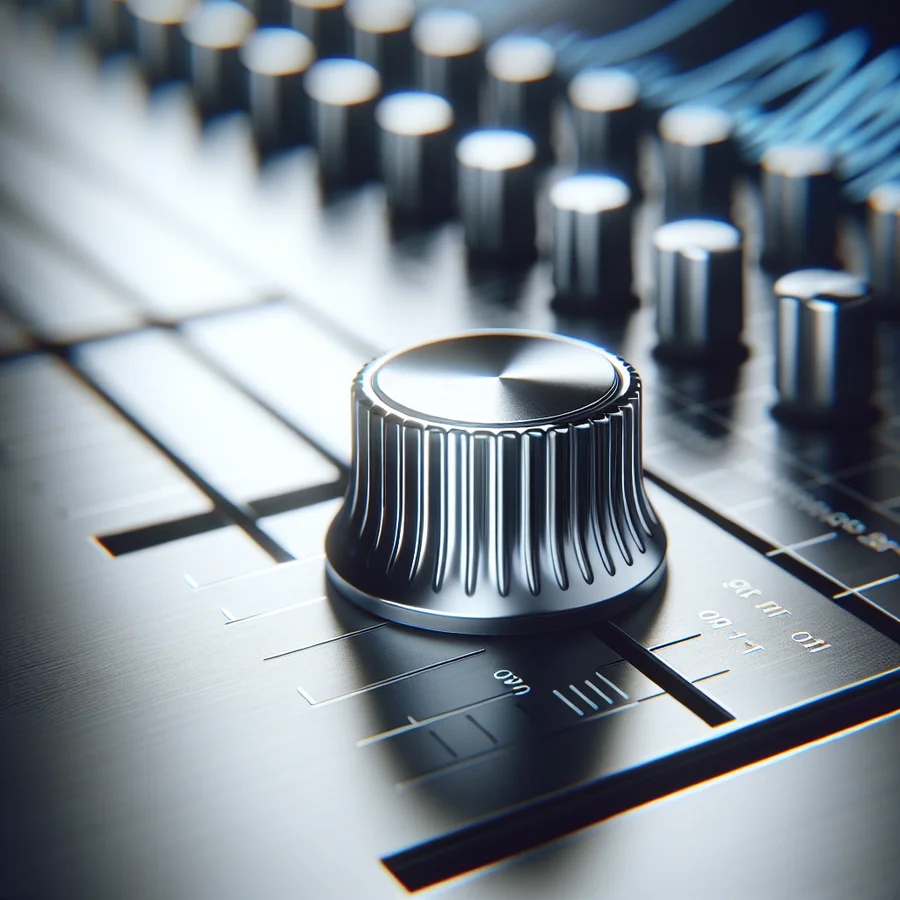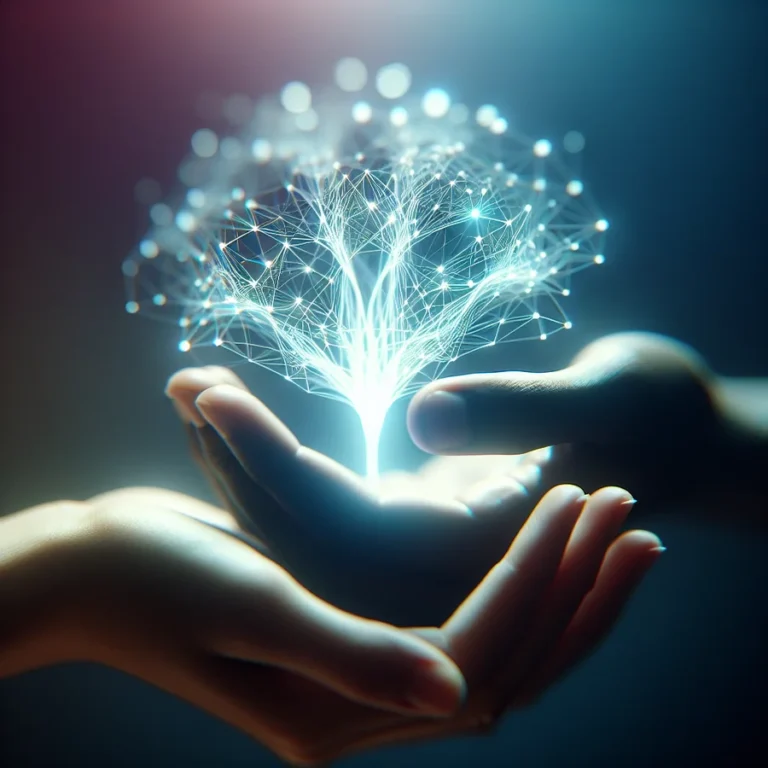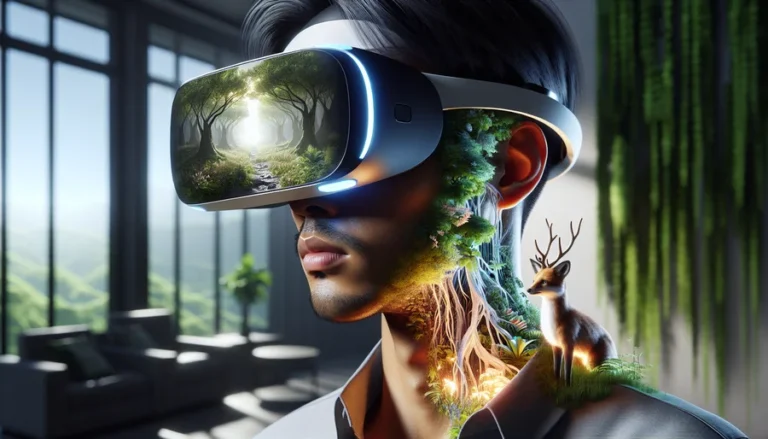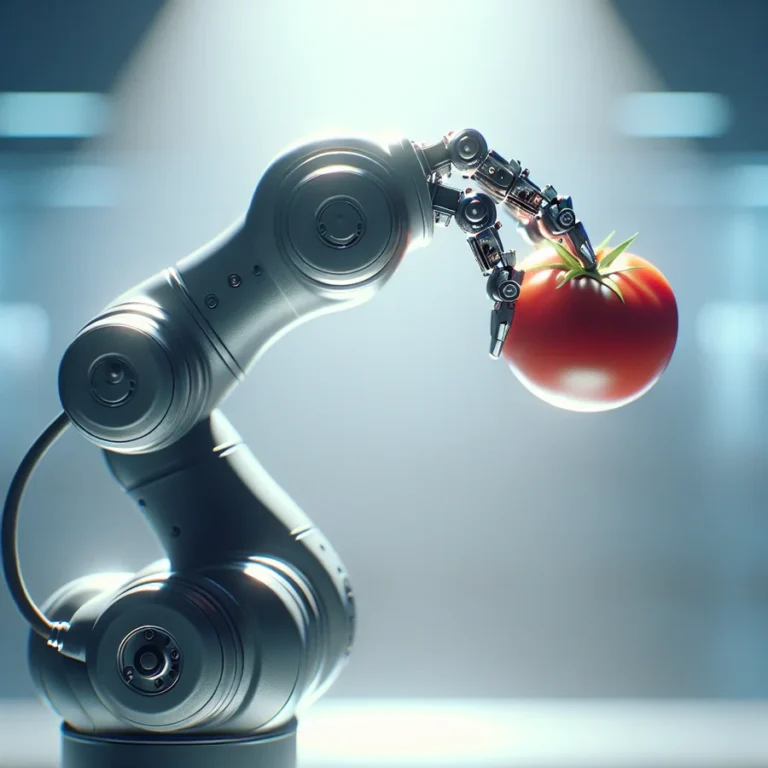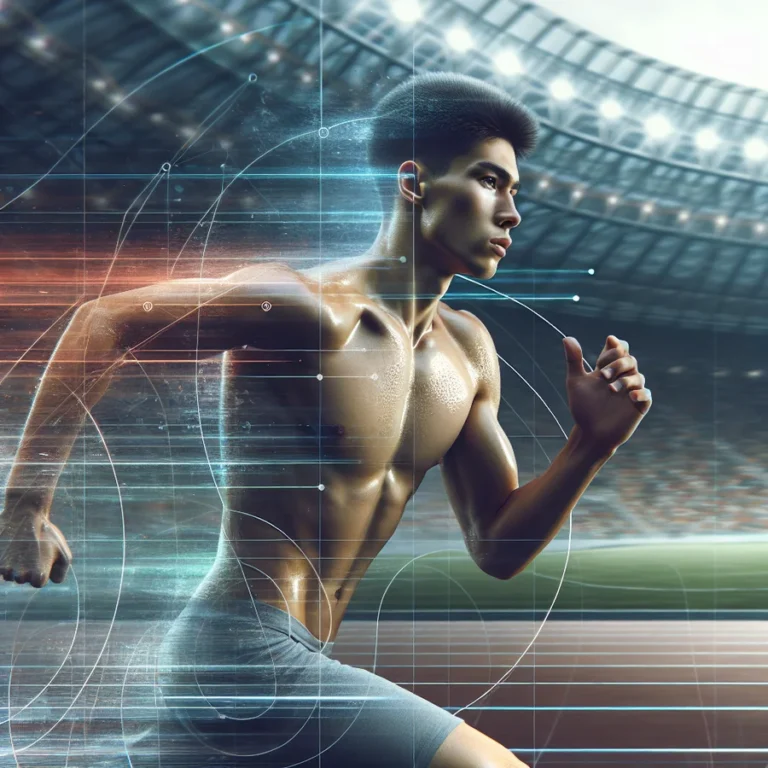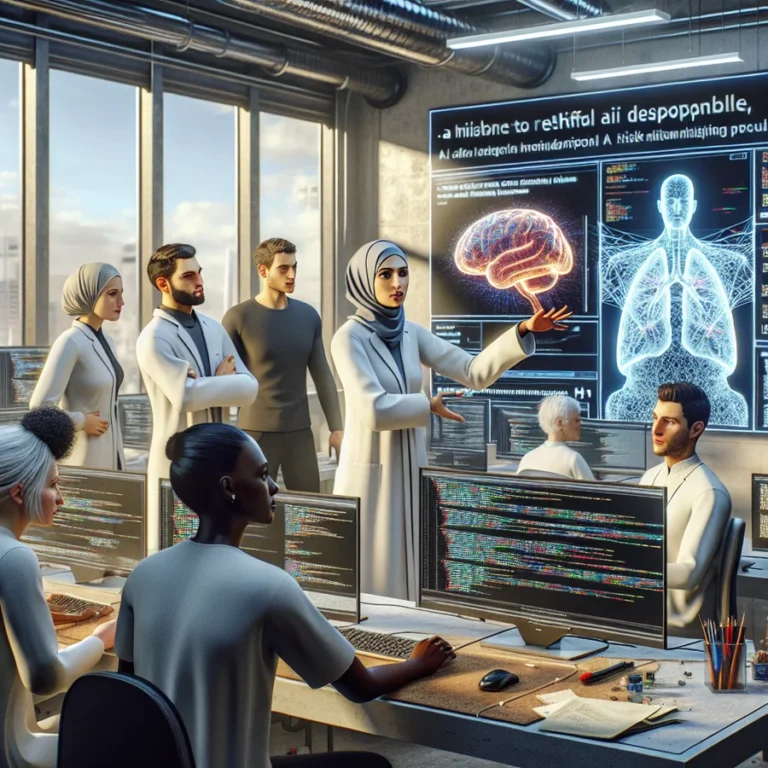AI in Music: Composing and Producing Tracks with Artificial Intelligence
Are you curious about how artificial intelligence (AI) is changing the music industry? AI is now capable of composing original music, assisting with production, and even mastering tracks. This guide explores how AI in music is revolutionizing the way music is created and consumed. We’ll delve into the tools, benefits, and challenges of using AI in music production, helping you understand its potential and limitations.
From generating background music to assisting seasoned professionals, AI in music offers a range of possibilities. Whether you’re a musician, content creator, or simply interested in the intersection of technology and art, this guide will provide valuable insights into the world of AI-powered music creation.
Understanding AI Music Generators
Let’s start with the basics. What exactly is an AI music generator? It’s a software tool that uses artificial intelligence to create music. These tools analyze existing music patterns, genres, and structures. They then compose original melodies, harmonies, and rhythms with minimal human input.
Think of it like this: you give the AI some instructions, like “create a happy, upbeat song in the style of pop music.” The AI then uses its knowledge to generate a track that fits your description. It’s like having a musical co-pilot that handles the technical stuff while you guide the creative vision.
How AI Music Generators Work
AI music generators rely on machine learning algorithms. These algorithms are trained on vast datasets of existing music. By analyzing these datasets, the AI learns to identify patterns and relationships between different musical elements. Here’s a simplified breakdown:
- Data Collection: The AI is fed a massive library of songs, covering various genres, styles, and artists.
- Pattern Recognition: The AI identifies recurring patterns in the music, such as chord progressions, melodies, and rhythms.
- Composition: Based on the identified patterns, the AI generates new musical ideas.
- Refinement: The AI refines the generated music based on user input and pre-defined parameters.
The AI uses neural networks, which are large sets of computer bits mimicking how the brain works. You give it tons of music, and the neural network learns the patterns. It’s a fast-track version of how we learn by repeatedly seeing things.
Reminder: AI music generators are constantly evolving. As AI technology advances, these tools will become even more sophisticated and capable.
Benefits of Using AI in Music
Why are so many people turning to AI in music? There are several compelling benefits. These advantages make AI a valuable tool for both amateur and professional musicians.
- Reduced Costs: AI can minimize the need to hire musicians or rent studio space, cutting down on production expenses.
- Faster Production: Generate background tracks instantly, saving time and money.
- Lower Licensing Fees: AI-generated music often reduces or eliminates licensing fees, making it a more affordable option.
- Idea Development: AI helps you quickly prototype musical ideas, allowing for faster experimentation.
- Accessibility: AI music generators allow those without formal musical training to bring their ideas to life.
Let’s break down these benefits further:
Cost-Effectiveness
Creating music traditionally can be expensive. Hiring session musicians, renting studio time, and paying for licensing can quickly add up. AI music generators offer a more affordable alternative. You can create high-quality music without breaking the bank.
Time Savings
Time is money, especially in the creative industries. AI music generators can significantly reduce the time it takes to produce music. Instead of spending hours or days composing a track, you can generate a song in minutes. This allows you to focus on other aspects of your project.
Democratization of Music Creation
Traditionally, music creation has been limited to those with formal training or access to expensive equipment. AI music generators are changing this. Anyone can now create music, regardless of their background or skill level. This opens up new opportunities for creativity and self-expression.
Note: AI isn’t meant to replace human creativity. It’s a tool to augment and enhance your musical abilities.
Challenges of Using AI in Music
While AI in music offers numerous benefits, it’s important to acknowledge the challenges. These challenges range from legal issues to artistic concerns.
- Copyright and Ownership: The legal status of AI-generated music is still unclear. Who owns the music – the user, the AI provider, or someone else?
- Loss of Human Expression: AI-generated compositions may lack the emotional nuances and unique touch that human musicians bring.
- Risk of Homogenization: As more creators use the same AI tools, there’s a risk that music may become repetitive and lack originality.
Let’s explore these challenges in more detail:
Copyright and Legal Issues
One of the biggest concerns surrounding AI in music is copyright. If an AI generates a song based on existing music, who owns the copyright? Is it the user who prompted the AI? Is it the AI developer? Or is it the original artists whose music was used to train the AI?
This is a complex legal issue with no easy answers. The legal system is still trying to catch up with the rapid advancements in AI technology. As a result, there’s a lot of uncertainty surrounding the copyright of AI-generated music.
Reminder: Many AI music tools now offer clear licensing terms. Be sure to read the fine print and understand your rights before using AI-generated music commercially.
Lack of Emotional Depth
Music is more than just notes and rhythms. It’s an expression of human emotion and experience. While AI can replicate musical styles and structures, it often struggles to capture the emotional depth that comes from human creativity.
Think of AI music as a raw material – a first draft that needs your human touch to shape, refine, and breathe life into it before sharing it with your audience.
Potential for Homogenization
As more and more people use the same AI tools, there’s a risk that music will become more generic and less original. If everyone is using the same algorithms and datasets, the resulting music may start to sound the same. This could lead to a homogenization of music, where everything sounds similar and nothing stands out.
To avoid this, try combining outputs from different AI systems, blending in unusual instrumentation choices, or applying custom post-processing effects that give your tracks a signature feel beyond the algorithm’s tendencies.
Factors to Consider When Choosing an AI Music Generator
With so many AI music generators available, how do you choose the right one? Here are some important factors to consider.
- User-Friendly Interface: A simple, intuitive interface is essential, especially if you’re new to AI music generation.
- Customization Options: Look for tools that allow you to adjust elements like genre, tempo, key, and instrumentation.
- Audio Quality: Make sure the tool delivers high-quality output that meets professional standards.
- Pricing Models: AI music generators range from free to paid services. Choose a pricing model that fits your budget and needs.
- Regular Improvements: Look for platforms that are constantly updating and improving their features.
Let’s dive into each of these factors:
User Interface
A user-friendly interface can make all the difference in your experience with AI in music. Look for tools that are easy to navigate and understand. The best platforms minimize the learning curve by organizing controls logically and providing visual feedback as you adjust settings.
Customization
Customization is key to creating music that truly reflects your vision. A good AI music generator will provide tools to adjust elements like genre, tempo, key, and instrumentation. Some advanced AI-powered composition assistants can generate chord progressions, melodies, basslines, and arpeggios that you can further tweak to match your exact requirements.
Audio Quality
The quality of the audio output is crucial. You want music that sounds professional and polished. Ensure the tool delivers high-quality output. Premium tiers often provide uncompressed WAV files or separate instrument tracks that give you more flexibility when incorporating music into your projects.
Pricing
AI music generators offer various pricing models. Free options are accessible but may have limited customization or lower sound quality. Most platforms follow a tiered approach with free entry-level plans that restrict usage or copyright ownership, while premium tiers unlock commercial rights and higher download limits. Consider the cost versus features and output quality.
Updates and Improvements
The field of AI in music is constantly evolving. Choose a platform that is committed to ongoing development and improvement. Companies that regularly add new instruments, genres, or control features show they’re responding to user feedback and industry shifts – a strong sign they’ll remain useful as your needs evolve.
AI Tools for Music Production
Now, let’s explore some specific AI tools for music production. These tools cover a range of applications, from composition to mastering.
- Mureka
- AIVA (Artificial Intelligence Virtual Artist)
- Mubert
- Ditto Music Mastering
- Orb Producer Suite
- Amper
- MuseNet
- RecordLabel.AI
- WavTool
- Brain.fm
- Ecrett Music
- Boomy
- LANDR
- LALAL.AI
- Moises.AI
- Atlas
- Playbeat
- Dreamtonics Synthesiser V
- Magenta
- Jukebox
Let’s take a closer look at some of these tools:
Mureka
Mureka transforms musical inspiration into polished tracks. It lets you train personalized AI models with your own uploaded music. This makes it possible to generate songs that match your unique style and taste. The platform supports various input types, including text descriptions, reference tracks, vocals, and even recorded melody ideas to kickstart compositions.
AIVA (Artificial Intelligence Virtual Artist)
AIVA functions as an AI music composition assistant. It produces original soundtracks in more than 250 styles. You don’t need musical training. The service operates on a three-tiered pricing model where usage rights expand with each level. The platform combines accessibility for beginners with tools sophisticated enough for professionals.
Mubert
Mubert functions as an AI music generation system. It algorithmically combines samples from a large library to create customized music based on your specifications. The platform offers separate services through Mubert Render for creating content, Mubert Studio for musicians to contribute samples, and Mubert API for software integration.
Ditto Music Mastering
This advanced AI audio mastering service can instantly master tracks. It optimizes listening experiences and streaming quality across all speakers, devices, and music platforms. You can even upload your track and try it for free to hear a full-length preview of your mastered music before downloading the final audio.
Orb Producer Suite
Helping producers generate melodies, basslines, and wavetable synthesizer sounds, Orb Producer utilizes state-of-the-art technology to create infinite musical patterns and loops for musicians to base ideas off.
LALAL.AI
LALAL.AI is a leading AI separation tool. It offers detailed separation in multiple high-quality audio formats. LALAL.AI uses its in-house developed neural network, Phoenix, to provide better vocal separation quality than all other AI-based stem splitters on the market.
Note: The AI music tool landscape is constantly changing. New tools are emerging all the time, so stay informed about the latest developments.
The Role of AI in Different Aspects of Music Production
AI in music is impacting various stages of the music production process. Let’s explore some specific applications.
Composition
AI can assist with composition by generating melodies, harmonies, and chord progressions. Tools like AIVA and Mubert are designed to create original compositions based on user input.
Arrangement
AI can help with arrangement by suggesting instrumentation and arranging different musical elements. Some AI tools can even create entire arrangements from scratch.
Mixing and Mastering
AI can be used for mixing and mastering by automatically adjusting levels, EQ, and compression. Tools like LANDR use AI to analyze and optimize your tracks for professional-sounding results.
Stem Separation
AI excels at separating mixed tracks into individual stems (vocals, drums, bass, etc.). This is useful for remixing, sampling, and creating karaoke versions of songs. LALAL.AI and Moises.AI are leading AI separation tools.
Ethical Considerations of AI in Music
As AI in music becomes more prevalent, it’s important to consider the ethical implications. These considerations include copyright, originality, and the potential impact on human musicians.
Copyright Infringement
One of the biggest ethical concerns is copyright infringement. If an AI generates a song that sounds too similar to an existing song, it could be considered copyright infringement. This could lead to legal battles and financial penalties.
Loss of Originality
Another concern is the potential for AI to stifle originality. If everyone is using the same AI tools, there’s a risk that music will become more generic and less creative. It’s important to use AI as a tool to enhance your creativity, not replace it.
Impact on Human Musicians
Some musicians worry that AI will replace human musicians, leading to job losses in the industry. While it’s true that AI can automate certain tasks, it’s unlikely that it will completely replace human creativity and intuition. The best music is often created through a combination of human skill and technology.
The Future of AI in Music
What does the future hold for AI in music? Experts predict that AI will continue to play an increasingly important role in the music industry. AI-powered tools will become more sophisticated and accessible, empowering musicians and content creators to create music more efficiently and creatively.
AI-Powered DAWs
Some experts believe that AI will eventually be integrated into digital audio workstations (DAWs). This would allow musicians to use AI to assist with every aspect of music production, from composition to mastering.
Personalized Music Experiences
AI could also be used to create personalized music experiences. Imagine a world where music adapts to your mood, your activity level, or even your biometric data. This could revolutionize the way we listen to and interact with music.
AI as a Collaborative Partner
Ultimately, the future of AI in music is likely to be one of collaboration. AI will serve as a powerful tool for musicians, helping them to explore new creative possibilities and push the boundaries of music.
Conclusion
AI in music is revolutionizing the way music is created and consumed. From generating background tracks to assisting seasoned professionals, AI offers a range of possibilities. While there are challenges to consider, the benefits of using AI in music are undeniable. As AI technology continues to evolve, it will undoubtedly play an increasingly important role in the music industry. Embrace AI as a tool to enhance your creativity and explore new musical horizons.
Key Takeaways
- AI enhances creativity: AI can spur creativity, efficiency, and innovation in music production.
- Balance is key: Balance AI’s technical prowess with human emotion and intuition.
- Ethical considerations matter: Address copyright issues and ensure diversity in AI-generated music.
Final Thoughts
The future of music production is a harmonious blend of human ingenuity and technological advancement. By embracing AI responsibly, we can unlock new levels of creative expression and innovation in the world of music.
FAQs About AI in Music
What is an AI music generator?
An AI music generator is a software tool that uses artificial intelligence to create music. It analyzes patterns, genres, and structures in existing music to compose original melodies, harmonies, and rhythms with minimal human input.
Can AI replace human musicians?
It’s unlikely that AI will completely replace human musicians. AI is a tool to enhance creativity, not replace it. The best music is often created through a combination of human skill and technology.
Is AI-generated music copyrighted?
The legal status of AI-generated music is still unclear. Many AI music tools now offer clear licensing terms that specify commercial usage rights.
What are the benefits of using AI in music production?
Benefits include reduced costs, faster production, lower licensing fees, quick idea development, and accessibility for non-musicians.
What are the challenges of using AI in music production?
Challenges include copyright and ownership issues, loss of human expression, and the risk of homogenization.
How do I choose the right AI music generator?
Consider factors like user-friendly interface, customization options, audio quality, pricing models, and regular improvements.
What AI tools are available for music production?
Some popular tools include Mureka, AIVA, Mubert, Ditto Music Mastering, Orb Producer Suite, LANDR, and LALAL.AI.
How is AI used in different aspects of music production?
AI is used in composition, arrangement, mixing, mastering, and stem separation.
What are the ethical considerations of AI in music?
Ethical considerations include copyright infringement, loss of originality, and the impact on human musicians.
What does the future hold for AI in music?
The future includes AI-powered DAWs, personalized music experiences, and AI as a collaborative partner.
